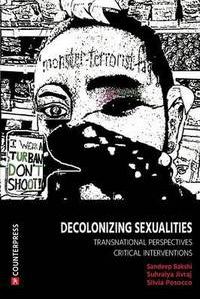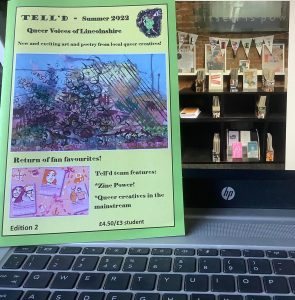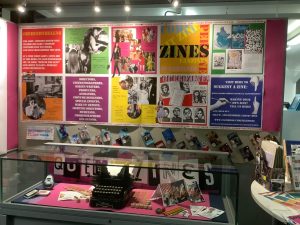By Dr Simon Obendorf
Senior Lecturer, School of Social and Political Sciences, College of Social Science and member of Decolonising@Lincoln Steering Committee.
More information about Simon’s research can be found here: Staff Directory
February in the UK is LGBT+ History Month: a time for reflection, celebration, and activism by and for lesbian, gay, bisexual trans, and non-binary folk. Certainly, there is much to remember, and even more of which we should be rightfully proud. But there is also a growing need to be aware of the challenges facing our communities. The increased prevalence in public discourse of certain forms of intolerance – especially against trans and gender non-conforming people – is something we must be steadfast in resisting. We should not lose sight of the fact that LGBT+ History Month is held in February precisely to commemorate the successful campaign of activism that led to the repeal of the discriminatory Section 28 of the UK’s Local Government Act. Together we are stronger; together we can change our society for the better.

Recent controversies should also inspire us to remember the importance of solidarity. We must recognise that many people with diverse sexual orientations, gender identities or gender expressions are marginalised not only by mainstream society but too often within supposedly inclusive LGBT+ spaces as well. In the West, political activism has been reasonably successful in articulating rights claims and carving out spaces for social participation for particular groups of lesbians, gay men, bisexual folk and trans people (the LGBT of the acronym). But we have paid far less attention to intersectional experiences of oppression and the lives and needs of those represented by the supposed catch-all of the “+” in “LGBT+”. This LGBT+ History Month, I’d like us to spend a bit more time thinking about these issues – inside and beyond the plus. Here I am inspired by thinkers from queer of colour scholarship and those seeking to bring decolonial perspectives to bear on issues of gender and sexuality.
So, what might unpacking some of these issues lead us to consider? Firstly, it would involve acknowledging that anyone’s experience of sexuality or gender is shaped by a range of other factors: age, race, ethnicity, religion, culture, migrant status, bodily capacity, class, education, location, profession, to name just a handful. For too long, much of our activism, commemoration, politics and practice in the West has centred the experience of white, Western, cis-gendered, non-disabled people. If we are truly to embrace and value diversity in our communities, we have to start by asking ourselves how diverse and inclusive they already are. There are heartening steps being taken here, from programmes combating sexual racism to the development of connections and resources regarding sexuality and gender in, by and for particular faith-based, ethnic or social groups. But more urgently needs to be done in order to make LGBT+ spaces and politics ones in which non-white, non-cis, non-Western and/or non-normative people and bodies see themselves recognised, valued and included. The Black lesbian scholar Audre Lorde famously wrote: “community must not mean a shedding of our differences, nor the pathetic pretence that these differences do not exist.”
Secondly, this should lead to us think about the stories we tell and the experiences we centre. Whether it be the Stonewall riots in New York in 1969, the election to the Board of Supervisors and subsequent assassination of Harvey Milk in San Francisco in 1977-78, the emergence of the Gay Liberation Front in the Britain of the 1970s or the rise, oppression and rebirth of queer society in Berlin during the 20th century, it can sometimes seem as if the LGBT history we celebrate and remember took place within a handful of postcodes in majority-White, Western cities, with White, cis-gendered gay men as its key actors. If we are truly to remember LGBT+ history, we must ensure that the contribution of women, drag practitioners, trans and non-binary folk and people of colour is never overlooked. To take just one example, when we consider the history of the Stonewall riots we do not celebrate and honour enough the central roles played by people like Marsha P Johnson (a Black gender-non conforming drag queen), Zazu Nova (a Black trans sex worker), Stormé DeLarverie (a butch lesbian drag king) and Sylvia Rivera (a Latinx trans person). The heroes who fought many of the early battles for LGBT+ freedom and inclusion are largely from the communities that are still, currently, under the most attack and experiencing the most oppression. We would better honour their memories by ensuring the inclusion they fought for is extended to everyone today.
Finally, I would like us to be more sensitive to terminology. Those who do not fit into the categories of Lesbian, Gay, Bisexual and Trans (LGBT), deserve to be spoken of more – and with more respect and recognition. These folk deserve much more than just a “plus”; they are not just an addendum after the main event. Inclusion matters. Here in the UK, we need much greater awareness and sensitivity towards those who live and identify as queer, asexual, aromantic, genderqueer, intersex, non-binary, pansexual, polyamorous, genderfluid or polysexual (and the list could continue!). There’s a wealth of rich, beautiful, fascinating history and experience that we should be celebrating and recognising.
This need for better awareness – and more sensitive language – becomes even more urgent when we widen our view. In their modern, globally circulating form, gay, lesbian, bisexual and even trans identities have emerged from very Western socio-historical experiences. Recently, the International Organisation for Migration (IOM) recognised publicly that many of the terms used to describe our communities “are of Western origin, and that, in particular, the terms lesbian, gay, bisexual, transgender and queer represent concepts of personal identity that are not universal.” They pointed to the fact that around the world people conceive of their gender and sexualities in different ways, use different terms to describe them and prioritise different things in their gender/sexuality activism. Whether it be gender liminal categories such as the kathoey of Thailand, the hijra of India, the fa’afafine of Samoa, or the two-spirit of indigenous North American cultures, or the new types of identity coalescing around same-gender attraction such as同志 (tongzhi) in Taiwan, Hong Kong and Macau, the varieties of gender identity, gender expression and sexual orientation – and the terms used to describe them – are as diverse and polyglot as our planet itself. Accordingly, many NGOs and international organisations are now shifting away from using language like LGBT+ to more accurate and inclusive acronyms like SOGIESC (Sexual Orientation, Gender Identity and Expression and Sexual Characteristics). Groups like the IOM and the Association of Southeast Asian Nations’ (ASEAN) SOGIE Caucus are at the vanguard of making us think more critically and inclusively about the terms we use and how we use them. Roberto Kulpa and Joseli Maria Silva capture some of this in their piece “Decolonizing Queer Epistemologies”: “we need not only to look for ‘non-Western’ examples of the world-wide diversity. Rather, and perhaps foremost, we must reconceptualise our own practices of ‘doing knowledge’”.
This LGBT+ History Month, I encourage you to take some time to consider how those of us in the LGBT community have “done knowledge”. Whose stories have we told? What language and terms have we used? Whose voices, histories, bodies and struggles have been seen to count? Whose identities, politics and futures have been made central. And what – and who – has been overlooked or left out? We have so much to celebrate. But we also have much still to do, so many battles still to fight. Recognising and celebrating the diversity and richness of our communities is a necessary first step towards standing in solidarity with those whose voices have for too long, especially in Western LGBT activism, been marginalised, silenced, or ignored. Celebrating our successes is important. But so too is recognising that new forms of oppression, discrimination and prejudice are emerging within the UK – and elsewhere – today. Similarly, we must acknowledge that, in 2023, the legacy of British colonialism continues to shape understandings, laws and values to do with sexuality and gender in damaging ways around the world. Recognising the depth and diversity of our histories and the plurality of our communities is key to building better futures. And this will require many of us to broaden our view, deepen our understanding and be more ambitious in our goals. As José Esteban Muñoz, challenged us in his book Cruising Utopia: “We must dream and enact new and better pleasures, other ways of being in the world, and ultimately new worlds”.
Recommended reading

